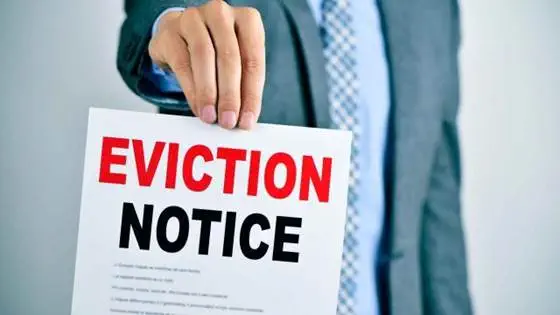No landlord likes to think about evicting a tenant, but sometimes it’s an unfortunate reality of property management. Whether it’s due to non-payment of rent or serious lease violations, knowing how to navigate the eviction process in Metro Detroit is crucial. An eviction done wrong can cost you time, money, and legal trouble – but done correctly (and only when necessary), it can help you regain control of your property and minimize losses. This guide will walk Metro Detroit landlords through the basics of the Michigan eviction process and highlight how professional property management can make a difficult task easier.
Legal Grounds for Eviction in Michigan
First and foremost, you cannot evict a tenant without a legally valid reason. In Michigan (and everywhere in the U.S.), tenants have rights, and you must follow the law to remove someone from your rental. You can’t evict just because you don’t get along with a tenant or because you want to re-rent at a higher price before the lease ends. Here are the legitimate grounds for eviction in Michigan:
- Non-Payment of Rent: The most common reason – if a tenant fails to pay rent, you have cause to evict. Michigan allows a 7-day notice for non-payment, meaning you must give the tenant a written demand for the rent or possession at least 7 days before filing for eviction.
- Lease Violations: If the tenant breaches significant terms of the lease (for example, keeping a pet when the lease bans pets, causing serious damage, or other violations), that’s grounds for eviction. Generally, for curable violations, Michigan requires giving the tenant a notice (often 30 days) to correct the issue or move out. Some violations that affect health or safety may be not curable, but you still must give proper notice.
- Illegal or Dangerous Activity: If a tenant is using the property for illegal purposes (drug dealing, illegal business) or is posing a threat to others, Michigan law allows swift action. Often a 24-hour notice to quit is permitted for illegal drug activity or other extremely severe issues.
- Holdover (Staying After Lease Ends): If the lease term has ended or the tenancy is month-to-month and you’ve given proper notice to terminate, but the tenant refuses to leave, that’s a cause. Typically, for a month-to-month in Michigan, you’d give a 30-day notice to quit (or one full rental period) to end the tenancy. After that period, if the tenant hasn’t moved, you can file for eviction as a holdover.
- Other Causes: Michigan also allows eviction for things like material health/safety violations – for instance, if a tenant creates a health hazard at the property, you can give a 7-day notice to quit.
It’s important to always use the correct notice form and timeframe for the specific situation. Serving the proper notice is the first critical step – if you don’t, the court may throw out your case due to a technicality.
Overview of the Eviction Process
Eviction in Michigan (including Detroit and its suburbs) is officially called a Summary Proceeding in court. It’s supposed to be a relatively expedited process compared to normal lawsuits, but it still has multiple steps and can take several weeks or more. Here’s a breakdown of how it generally works:
- Serve Notice to Quit/Demand for Possession: This is the written notice to the tenant that there’s an issue (non-payment, violation, etc.) and they need to pay up/correct it or vacate by a certain deadline. As mentioned, use the proper notice: 7-Day Demand for Rent, 30-Day Notice to Quit for a curable breach, etc.. Deliver this notice in one of the legally acceptable ways (personal delivery, posted on the door and mailed, etc.). Keep a copy and record the date served.
- Wait for the Notice Period: You must give the tenant the full notice period to remedy the situation if the law allows it. For example, after a 7-day demand for rent, on day 8 if rent is still unpaid, you can proceed. If the tenant cures the violation or pays within the timeframe, you typically lose the right to evict on that notice (because the issue was resolved).
- File a Complaint in Court: If the notice period passes without resolution, the next step is to go to the local district court (in Detroit, the 36th District Court handles evictions; in suburbs, the district court for that city/township). You file a Summons and Complaint for eviction (also called possession). This paperwork must be filled out correctly, citing the reason and relevant details. Michigan’s courts have standardized forms for landlords. When you file, the court clerk will set a date for a hearing (usually within 10-14 days of filing).
- Serve the Court Papers: The tenant must be officially served the summons and complaint. Courts often have officers or process servers handle this. It can be delivered personally or by mail according to court rules. Proper service is critical; if the tenant wasn’t served properly, the judge might adjourn the hearing.
- Court Hearing: On the date, both you (or your representative) and the tenant can appear. You present your case – showing the lease, the notice you gave, proof of the violation or non-payment, etc. The tenant can offer defenses. Common tenant defenses include improper notice, landlord didn’t maintain the property (so they withhold rent), retaliation, or that they actually paid and you refused it, etc.. If the tenant doesn’t show up, you can usually get a default judgment for possession.
- Judgment: If the judge rules in your favor, they’ll issue a Judgment of Possession (sometimes also a money judgment for unpaid rent if requested). If the tenant wins, the case is dismissed and they stay.
- Waiting Period / Time to Move: After a judgment for possession, Michigan law gives the tenant a period (usually 10 days) before eviction can proceed. This gives them a chance to move out voluntarily or appeal. In non-payment cases, the tenant could also stop eviction by paying all rent and costs in that time (right of redemption).
- Order of Eviction (Writ of Restitution): If the tenant still hasn’t moved after the post-judgment waiting period, you can request a Writ of Restitution from the court. This is essentially the eviction order that authorizes a court officer to remove the tenant. The court will direct a sheriff or court bailiff to schedule the physical eviction.
- Eviction Day: The sheriff/bailiff comes to the property, and the tenant and their belongings are removed. As the landlord, you should never do self-help (like changing locks yourself before this step) – that’s illegal in Michigan. The authorities will supervise the lockout. You then can change locks and regain possession.
- Possession and Next Steps: Now you have your property back. You might have to deal with storing or disposing of any belongings left behind (Michigan has specific rules on handling abandoned property). Then you can repair, clean, and get it ready to rent again.
All told, the eviction process in Michigan can take anywhere from around 2 weeks to 2 months under normal conditions. If a tenant fights it (files motions, demands a jury trial, etc.), it can take longer. During certain times (like pandemic-related moratoriums previously) it can also extend. But generally, a few weeks to a month is common for uncontested cases, contested ones maybe a couple of months.
Tips for a Smoother Eviction Process
Eviction is a legal procedure, so attention to detail and adherence to the law are paramount. Here are some tips to avoid pitfalls:
- Serve Notices Properly: Double-check you’re using the right notice form and giving the correct amount of time. For example, if a tenant’s lease violation can be fixed (like removing an unauthorized pet), give a 30-day notice to comply or quit. If in doubt, consult Michigan’s legal aid resources or an attorney for the correct notice.
- Document Everything: Keep records of payment ledgers, communications, copies of notices, etc. You may need to show the judge these documents. If the tenant was always late or problematic, having that history helps your credibility (and might discourage the tenant from contesting if they know you have evidence).
- Don’t Accept Partial Rent (If You Plan to Evict): In Michigan, if you take a partial rent payment after issuing a pay-or-quit notice, it could void that notice. The law can treat it as you entering a new agreement. It’s often best to refuse any money after filing unless it’s the full amount owed plus fees (and even then, get advice – taking full payment after filing could also end the case).
- Attend the Hearing or Have Representation: If you don’t show up, your case will likely be dismissed. If you’re nervous, you can hire an attorney for a relatively modest fee to handle a simple eviction or use a property manager who provides eviction services.
- No Self-Help Evictions: This is worth repeating – do not take eviction into your own hands by changing locks, shutting off utilities, or removing the tenant’s stuff without a court order. Michigan courts frown very heavily on self-help. You could be liable for damages to the tenant.
- Be Prepared for Tenant Defenses: Sometimes a savvy (or rightly aggrieved) tenant will argue things like you didn’t fix something, so they withheld rent, or you’re retaliating because they complained to a housing authority. Retaliation is illegal if, for example, you try to evict within 90 days of a tenant contacting a code enforcement about your property. Always keep your property in good repair and address legitimate issues – it’ll protect you in court, since a tenant’s defense of “landlord breached obligations” can sometimes stop an eviction if the issue is severe (like lack of heat, etc.).
- Understand the Timeline: As a landlord, realize that each step takes time. Many new landlords are frustrated they can’t just “kick someone out” immediately when rent is missed. Having realistic expectations (2-6 weeks typical) will help manage your stress. Starting the process promptly is important – every day a non-paying tenant remains is money lost. Experienced property managers often say acting quickly is key, because lost time is lost rent.
How Professional Property Managers Help with Evictions
If all of the above sounds overwhelming, that’s because evictions can be complex. This is where a professional property management company, like Zamzam Property Management, proves its worth. Here’s how we assist and streamline the eviction process for Metro Detroit landlords:
- Preventive Screening: First off, we work hard to avoid evictions in the first place by screening tenants thoroughly (as described in the tenant screening blog). A well-screened tenant is far less likely to end up in eviction. While no screening can predict unexpected life events (job loss, health issues), it does weed out those with known histories of non-payment or evictions.
- Prompt Action on Delinquencies: The moment a tenant falls behind or violates a lease, we take appropriate action. For instance, if rent is late beyond any grace period, we immediately send the requisite 7-day demand notice. As one Detroit property manager noted, not acting quickly can be a mistake because you lose money every day with a bad tenant. We agree – swift, decisive action is necessary. By “forcing the issue” early (through notices and communication), we either get the tenant back in compliance or lay the groundwork to remove them sooner rather than later.
- Knowledge of Legal Procedures: Zamzam’s team knows the ins and outs of Michigan’s eviction laws and local court procedures. We ensure all forms are correct, all notices properly served, and all deadlines met. We know, for example, which district court has jurisdiction for your property and what that court’s particular processes are (36th District in Detroit is notoriously busy; some Oakland County courts might have different scheduling norms, etc.). This experience helps avoid errors that could delay the case. As a result, things move along as fast as legally possible.
- Representation: We can represent the owner in court for eviction hearings (depending on the case and local regulations; sometimes an attorney may be engaged, but property managers often handle it for you in small claims landlord-tenant court if allowed). This spares you the stress of appearing yourself. We come prepared with all documentation to prove the case.
- Coordination with Legal Professionals: In more complex cases (e.g., contested evictions or tenants declaring bankruptcy), we have relationships with landlord-tenant attorneys in Metro Detroit whom we can involve. Having these connections can expedite getting professional legal guidance when needed.
- Executing the Eviction: When it comes time for the physical eviction, we coordinate with the court bailiffs, locksmiths, and even cleaning crews. It can be a logistically hectic day, but we handle the arrangements. If belongings are left behind, we know the protocol for storage or disposal under Michigan law and will handle that accordingly.
- Transition to New Tenant: After regaining possession, our work continues – we document the condition, manage any repairs or cleanup (perhaps using the prior tenant’s security deposit if applicable), and then swiftly move to advertise and fill the vacancy with a new, qualified tenant to get your cash flow going again.
One Detroit property management blog emphasized that having the “best property management Detroit offers” handle your evictions makes the situation less stressful and more efficient. They noted how their familiarity with the process and key contacts made evictions smoother. At Zamzam, we strive for the same – to leverage our experience so that an eviction, if it must happen, is as painless as it can be for the owner.
Mitigating Eviction Risks
A quick note on reducing the chances of eviction: beyond screening, maintain good communication with tenants. Sometimes a late-paying tenant can get back on track if approached professionally – for instance, through a one-time payment plan. While you shouldn’t allow chronic lateness, a considerate approach to an otherwise good tenant hitting a hard month can keep them as a long-term renter (saving you the cost of turnover). We often communicate with tenants who are late to understand their situation and try to find solutions before resorting to eviction filings – because an amicable resolution is better if attainable.
However, if a tenant simply isn’t holding up their end, then we have no hesitation in moving forward with eviction to protect the owner’s interests.
Conclusion
Evictions are the last resort tool for landlords – something you hope you never have to do but must be prepared for. In Metro Detroit, understanding the legal eviction process is essential for anyone managing rental property. To recap:
- Always have a legal reason and give proper notice before eviction.
- Follow the court process step by step – from filing to judgment to writ – and never attempt self-help measures.
- Typically, expect a timeline of a few weeks to a couple months for an uncontested eviction in Michigan[69].
- Act quickly and efficiently to minimize lost rent, and consider getting experienced help to avoid mistakes.
For landlords who’d rather not navigate these murky waters alone, Zamzam Property Management is here to help. We handle evictions on behalf of our clients, ensuring all legal procedures are correctly followed and moving decisively to get your property back. We also put strong emphasis on placing quality tenants to prevent evictions from occurring in the first place, and on timely rent collection and enforcement to catch issues early.
While an eviction can be stressful, having a knowledgeable partner can make it far less so. With the right approach, you’ll get through the process with your rights upheld and your property ready for a fresh start with a new tenant. Remember, the goal is to maintain a profitable, well-run rental – and sometimes that means firmly removing those who jeopardize that. Stay informed, stay compliant, and lean on experts when needed, and you’ll successfully navigate even the toughest aspects of landlording in Metro Detroit.

Michigan law requires proper cause and procedure for evictions – typically, a landlord must give notice (7 days for non-payment or 30 days for lease violations) and obtain a court order before removing a tenant. Professional property managers can streamline this legal process for Metro Detroit owners.


